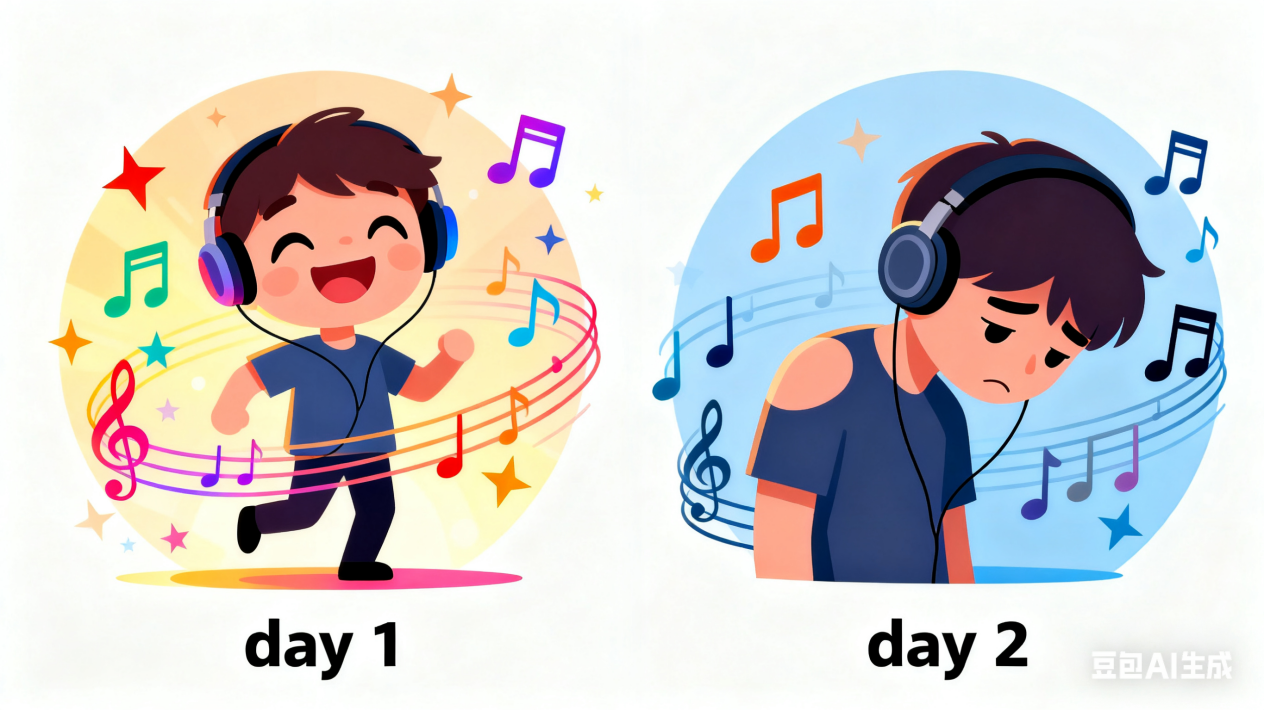
You went to exercise—maybe a jog in the park, a workout at the gym, or even a quick walk around your neighborhood—and took your iPod. It has the same playlist you’ve listened to all week, the one that used to get you pumped up. But suddenly, the music doesn’t work anymore. Instead of boosting your energy, it makes you feel tired and unmotivated. Why is that?
In earlier talks about music psychology, we learned a key fact: only music that matches your feelings or thoughts can inspire you. This is why people have such different musical tastes—what moves one person might not touch another. If a song reflects what’s going on in your mind, it will push you to keep going. So you might think: a playlist I chose myself should always work, right?So what’s the solution? Be your own DJ. Don’t just play the same old list on repeat. Skip the songs that don’t match how you feel today, and play more of the ones that fit your current thoughts. This way, you’ll always get the energy boost you need to keep exercising.
原创编写 版权所有 侵权必究! 每日更新 个性化阅读 英语飙升!
1.1. What problem does the writer describe in the first paragraph?
A The iPod suddenly broke down during exercise.
B The familiar music lost its motivating effect.
C The playlist was not suitable for jogging.
D The person felt too tired to exercise.
解析:选B。B细节理解题。文章开头描述了一个场景:你带着iPod去运动,播放着常听的、曾经让你兴奋的播放列表,但突然音乐“不起作用了”(doesn’t work anymore),它不再提升你的能量,反而让你感到疲惫和缺乏动力。选项B“熟悉的音乐失去了激励效果”是对原文“the music doesn’t work anymore... makes you feel tired and unmotivated”的准确概括和同义转述。故选B。
2.2. What is the key reason that music can inspire a person?
A It has a fast beat and loud volume.
B It is the latest popular song.
C It relates to the listener’s inner state.
D It is from a favorite playlist.
解析:选C。C细节理解题。第二段第一句明确指出“only music that matches your feelings or thoughts can inspire you”(只有与你的感受或想法相匹配的音乐才能激励你)。选项C中的“relates to the listener’s inner state”(与听者的内心状态相关)是对原文“matches your feelings or thoughts”的同义转述。故选C。
3.3.Why might the same playlist sometimes fail to motivate you?
A Because the playlist becomes outdated quickly.
B Because the music’s sound quality gets worse.
C Because one’s mental state changes over time.
D Because exercise reduces the ability to hear music.
解析:选C。C推理判断题。文章第三段开头提到“Your mood and thoughts change every day”(你的情绪和想法每天都在变化),接着用具体例子说明不同心情下对同一首歌的感受会不同。由此可以推理出,相同的播放列表有时会失效是因为人的心态会变化。故选C。
4.4. What is the solution to the problem of music not working?
A Buy a new iPod.
B Stop listening to music.
C Share playlists with others.
D Change playlists timely.
解析:选D。D细节理解题。最后一段提到“So what’s the solution? Be your own DJ. Don’t just play the same old list on repeat. Skip the songs that don’t match how you feel today, and play more of the ones that fit your current thoughts.”,解决这个问题的核心是不要重复播放旧列表,要根据当下感受选择歌曲,即及时更换播放列表。故选D。